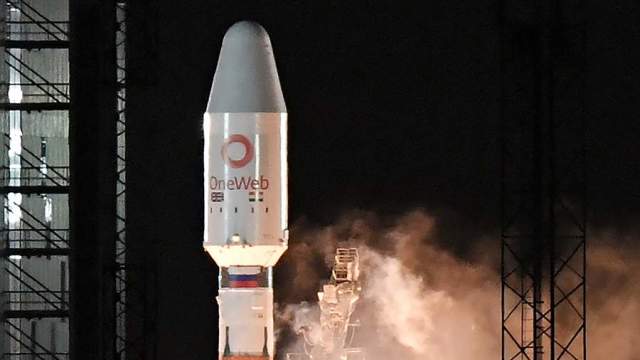Moscow. September 15. INTERFAX-Roscosmos plans to launch three rockets with OneWeb satellites from different cosmodromes by the end of 2021, the head of the press service of Roscosmos, Vladimir Ustimenko, said.
"By the end of the year, according to the plan, we will launch three more rockets from different cosmodromes," Ustimenko said in his Telegram channel.
Earlier, Roscosmos reported that the state corporation plans to conduct ten launches with such spacecraft in 2021. So far this year, Roscosmos has carried out six launches of OneWeb satellites.
As the head of Roscosmos Dmitry Rogozin reported, the new launch of the British OneWeb communication satellites from the Vostochny cosmodrome is scheduled for October 14.
There are already more than a hundred such satellites in orbit, the first were launched into orbit in February 2019 from the Guiana Space Center (French Guiana).
In July, the British company announced that it plans to complete the deployment of a satellite constellation to provide global coverage by June 2022. According to OneWeb, the grouping in low Earth orbit will consist of 648 satellites.
In June 2015, Roscosmos signed a contract with Arianespace for 21 commercial launches of 672 communications satellites of the British OneWeb space system on Soyuz-2 launch vehicles with Fregat family upper stages from the Baikonur, Vostochny, and Kourou cosmodromes in French Guiana. The contract value was $1.2 billion.
On April 23, the head of Roscosmos announced that the state corporation and OneWeb held negotiations on April 9 at Baikonur on concluding a new contract for the launch of the second generation of the company's devices.
On August 23, Rogozin told Interfax that OneWeb positively assesses the work with Roscosmos and is considering the possibility of concluding a new contract, but the signing may fail due to US sanctions.
Earlier, the first deputy head of Roscosmos for finance, Maxim Ovchinnikov, said in an interview with Interfax that the state corporation expects to conclude a contract with OneWeb to launch second-generation satellites.
"We will do everything to get this contract," Ovchinnikov said.

